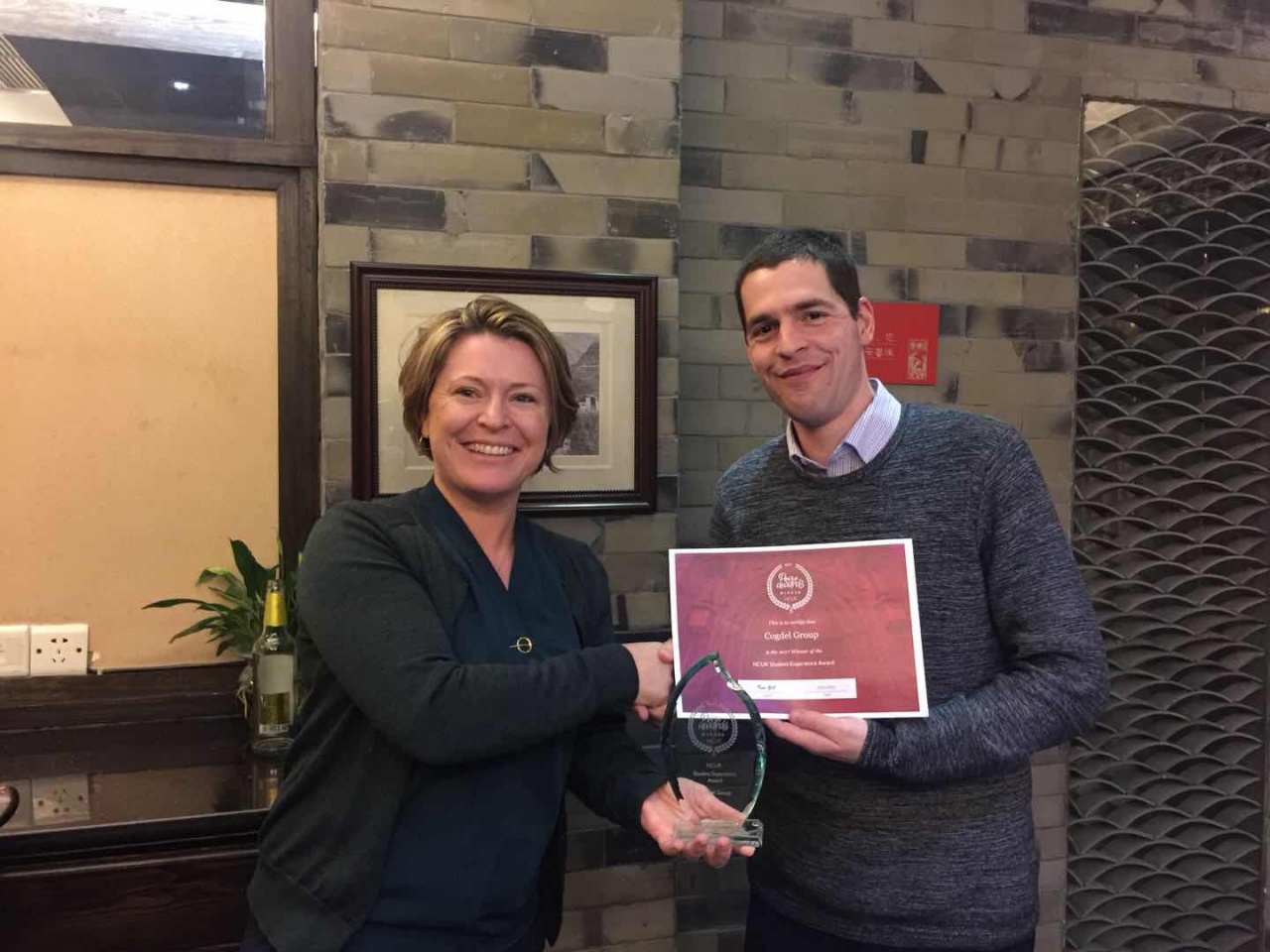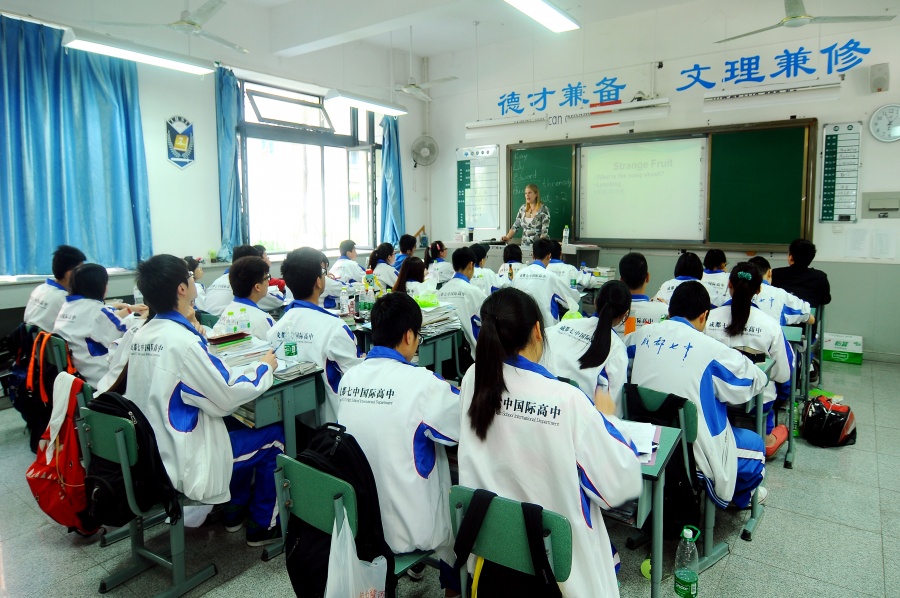Motivating Students For Success
Katy Christie, NCUK Regional Director (China and Indonesia)
November 2017 marked the 30th year for NCUK and a special Prize Awards event was attended by partners from NCUK Study Centres, Universities and and students from around the world. Study Centres were selected to receive many awards for their work with students. One such award was presented to the Cogdel group in China.
As they were unable to attend the ceremony itself, Adam McRoy and Oscar Zhang from the Cogdel Group were presented with the NCUK Student Experience Award in Chengdu by Katy Christie and Harry Feng from the NCUK China team.
Picture: Katy Christie (NCUK) and Adam McRoy (Cogdel Group)

This award is determined by having the highest proportion of student satisfaction ratings from the annual NCUK Student Satisfaction survey. So, how do our teachers and centre staff value student satisfaction? Are there any keys to success in this area and, is a satisfied student, always a successful student?
With so many questions like this, we wanted to ask an expert on how they set about motivating students for success. Adam McRoy can claim to have inspired almost 1,000 NCUK students so he is very well placed to answer our questions.
Adam has been working in China for his entire career to date. He’s been the Academic Manager of the NCUK IFY qualification in the International Department of Chengdu No.7 High School for the past decade. The school is widely considered the best high school in the west of China and is ranked inside the top 10 nationally. He’s worked on both International Foundation Year (IFY) and Pre-Masters Preparation (PMP) qualifications and before working with NCUK, he was Director of Studies at EF English First, the world’s largest educational organisation, for 5 years, where he was responsible for 1,400 students and 50 teachers.
Adam was interviewed by Katy Christie, Regional Director for NCUK in China.
Q: As a teacher, how do you measure the student experience inside (and outside) the classroom?
A: “We begin by making sure the centre maintains the most rigourous of academic environments.

Our assessment system ensures that every academic programme — including IFY, Chinese Huikao subjects, elective courses and extra credit programmes — has specified learning outcomes and a system of assessment to measure the outcomes. But we also know that student learning takes place outside the classroom, and that includes our diverse range of extracurricular activities and the literally hundreds of opportunities students can dive into: national and international competitions, volunteer work, internships and off-campus work experience.”
Q: What ‘tricks of the trade’ do you use to strike a balance between keeping students satisfied and ensuring their high achievement?
A: “Challenge, rigour, and high academic standards are all necessary for students to become high achievers. However, if we push these too far to a point where students become dissatisfied, we risk frustrating them and giving their learning process a setback. One of the major challenges of IFY teaching is to find that happy medium where we can push students further than they thought they could go on their own without frustrating them to the point where they become disinterested. Accomplishing this requires constant checks and recalibrations to ensure that we are creating an environment where students can truly thrive.”
Q: What is the key difference, do you think, between a good and an outstanding student experience?
A: “Open and transparent feedback channels are essential to deliver a truly outstanding student experience. Not only does this allow the centre to see the areas that require improvement and consider the needs of all students, but the school management knows where and how to focus their efforts. We are currently working to integrate insights from the initial 2017-18 student survey with those gleaned through regular student union meetings. This will mean that these detailed findings can be discussed with student reps, the academic team and student services to ensure the best steps are taken to meet student needs. It is important not to just listen to the students but to implement change so that they know their feedback is being taken seriously.”
Q: What would be the first three things you do with a class to lay the foundations for the year ahead?

A: “The absolute first thing I do with every IFY class is to remind them that I have two jobs: the first one is to get them to the UK at the end of the year, but the second, much more important job, is to make sure they are successful students once they get there. This can be a difficult concept for IFY students to comprehend as everything up to this point has been focused solely on “studying abroad”. However, once they realise that that’s just the start of their journey, they become more motivated and invested in all aspects of their own learning.
The second thing I do with all classes is to make students aware of the importance of independent learning and time-management, which are non-negotiable skills for international students. In Chengdu, we frequently have extra classes and guest lectures on such topics, quite often given by former IFY students. Finally, it is vital that students are familiar with the syllabuses for all IFY subjects. They need to know right from day one how the whole year will progress in order to manage their time appropriately and understand the importance of spreading revision out over the entire academic year.”
Finally, we asked Adam what he loves about teaching NCUK qualifications:
The IFY qualification not only helps young people achieve their dream of studying overseas, but also ensures they are successful during their time in the UK.
If you would like more information about this interview or the topic, please contact Katy Christie by emailing together@ncuk.ac.uk.